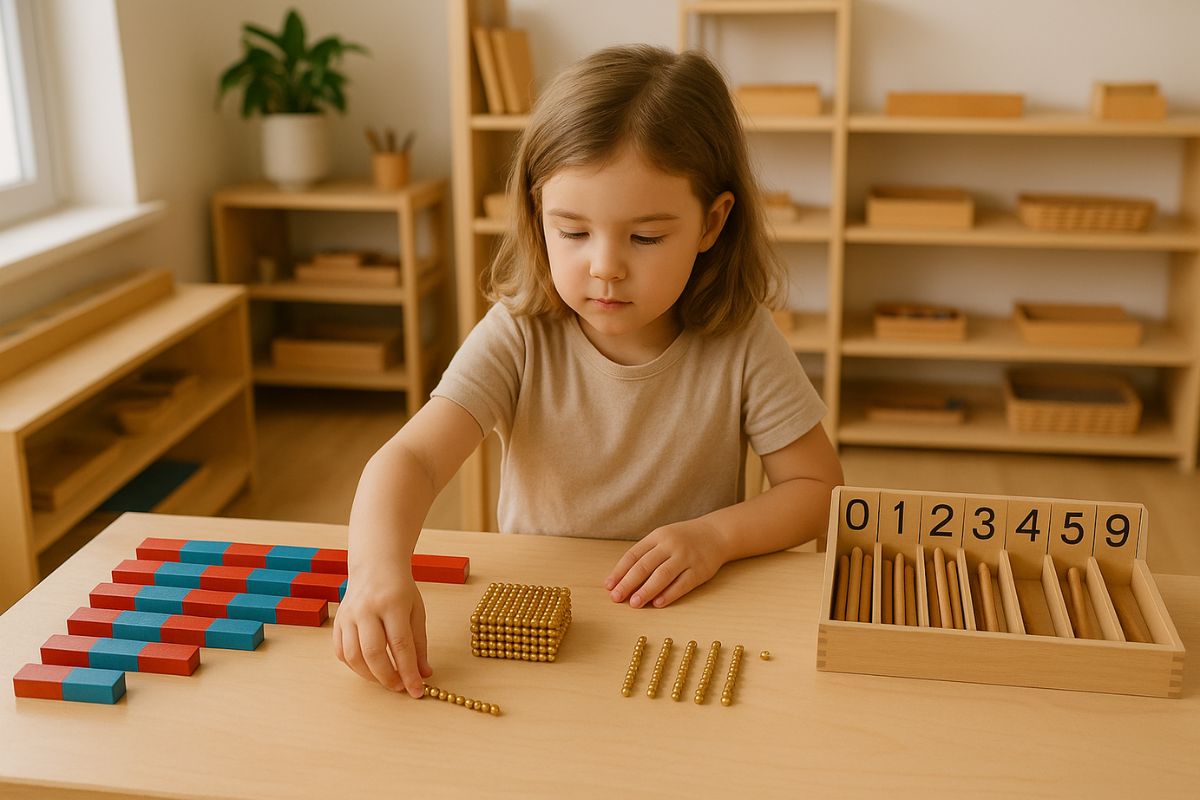Math is often seen as numbers on a page, but in Montessori classrooms, it looks and feels different. Instead of abstract problems right away, children begin with hands-on materials that make math come alive. They build, count, touch, and move their way into understanding. This method respects how children naturally […]
Read More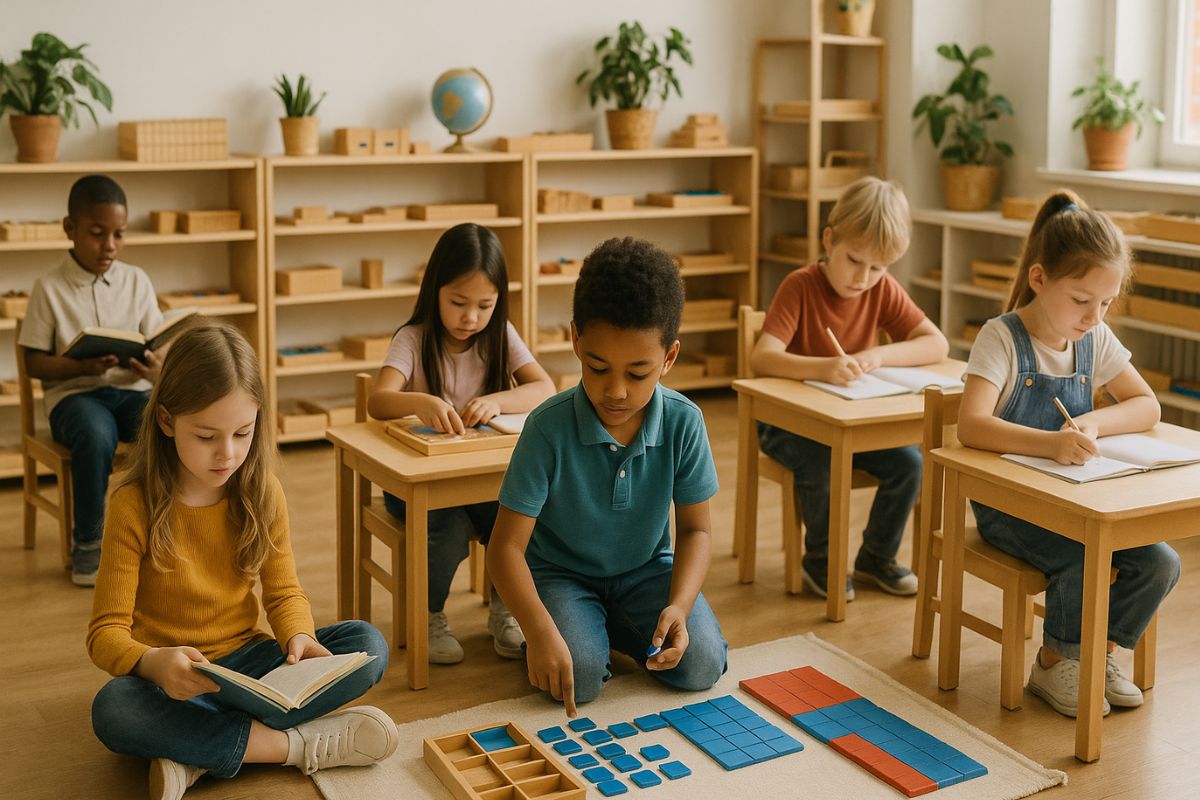
Academic Growth in Montessori Students
Academic success means more than just test scores. It’s about deep understanding, the ability to think clearly, and the confidence to keep learning. For Montessori students, academic growth looks different than in traditional classrooms. It happens through hands-on work, personal interest, and a thoughtful balance of freedom and structure. These […]
Read MoreMontessori and Individual Learning Pace
Every child learns in their own way and on their own timeline. In Montessori classrooms, this idea is not just accepted—it’s celebrated. The approach is designed to support the natural rhythm of each child’s development. Instead of pushing everyone through the same material at the same speed, Montessori education offers […]
Read More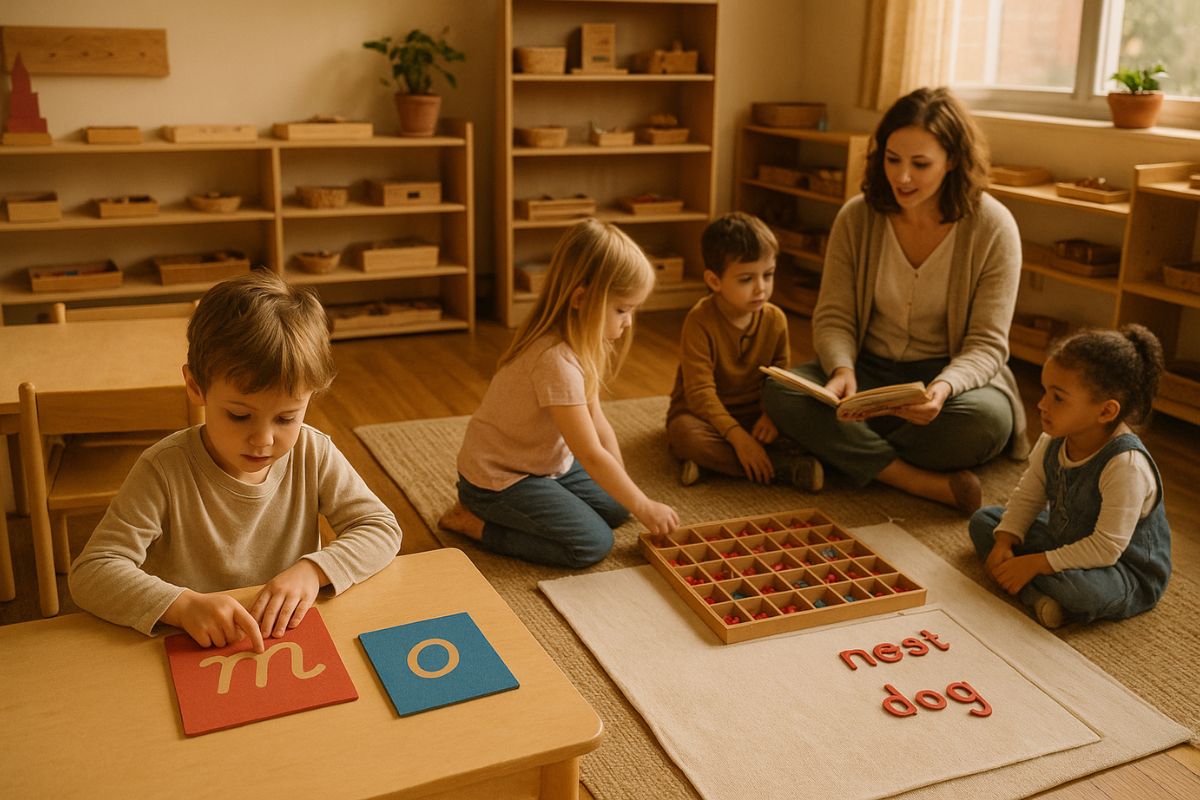
How Montessori Develops Language Skills
Language is more than just a way to speak. It shapes how children think, connect, and understand the world around them. For parents and educators, helping children build strong language skills is one of the most meaningful things they can do. In Montessori classrooms, this process starts early and follows […]
Read More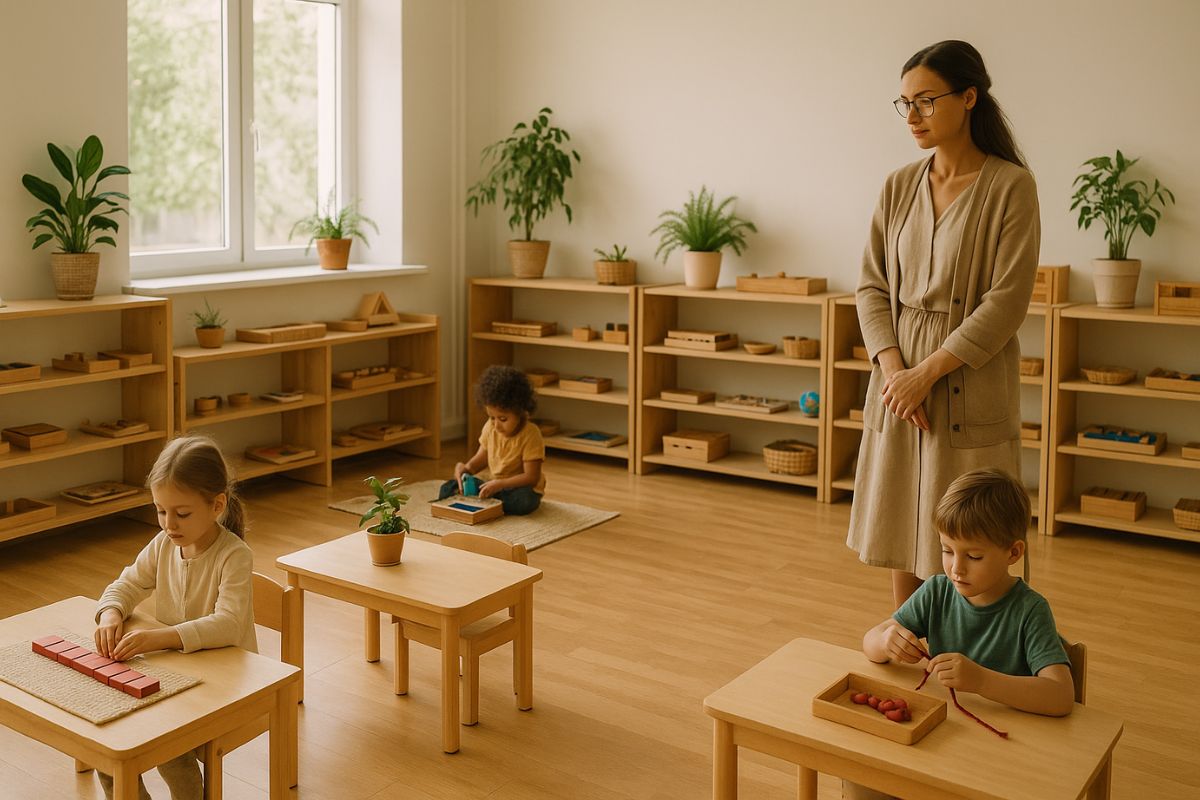
Scientific Insights on the Prepared Environment
Children grow best in spaces designed with purpose. In Montessori education, the concept of the prepared environment isn’t just a theory—it’s a central part of how children learn and thrive. But what does science say about it? How does current research support the careful design of learning spaces that meet […]
Read More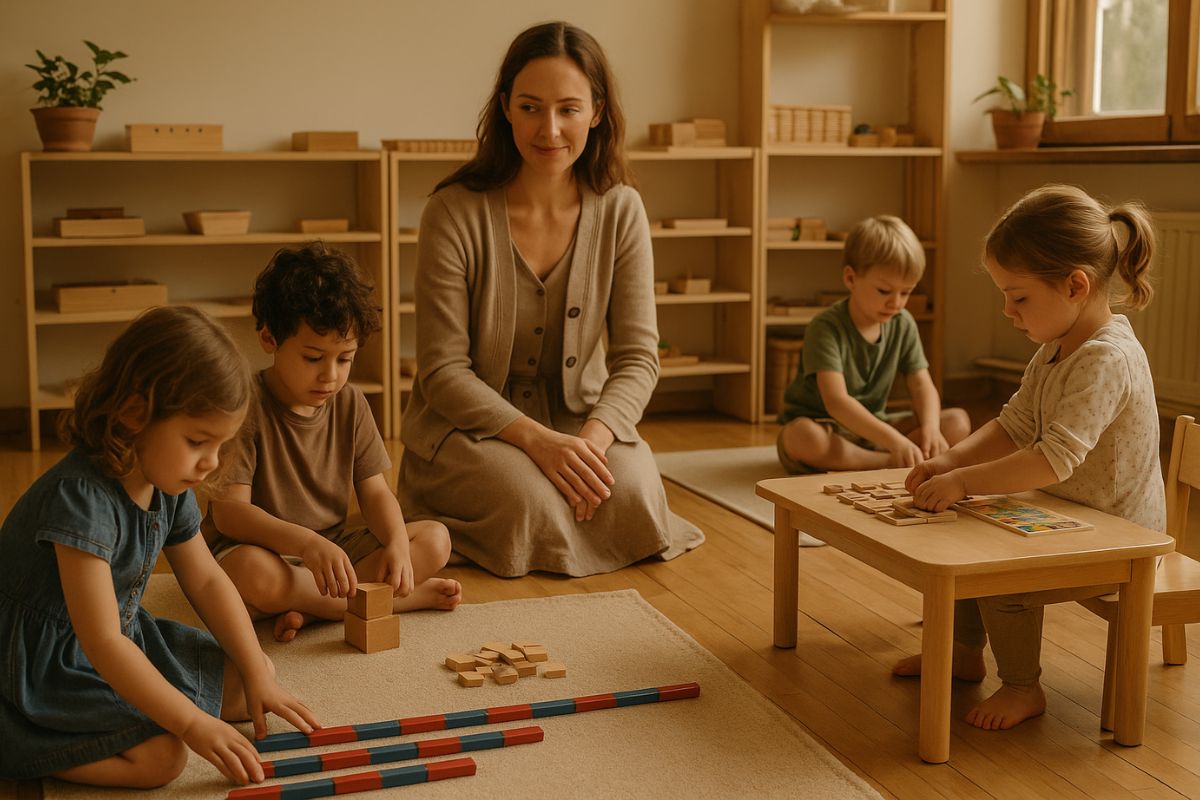
Encouraging Problem Solving in Montessori
Children are naturally curious, and Montessori education is built to nurture that curiosity. Instead of giving them answers, it gives them the space to think. In a Montessori classroom, problem solving is more than a skill—it’s part of daily life. And for many parents and educators, it’s one of the […]
Read More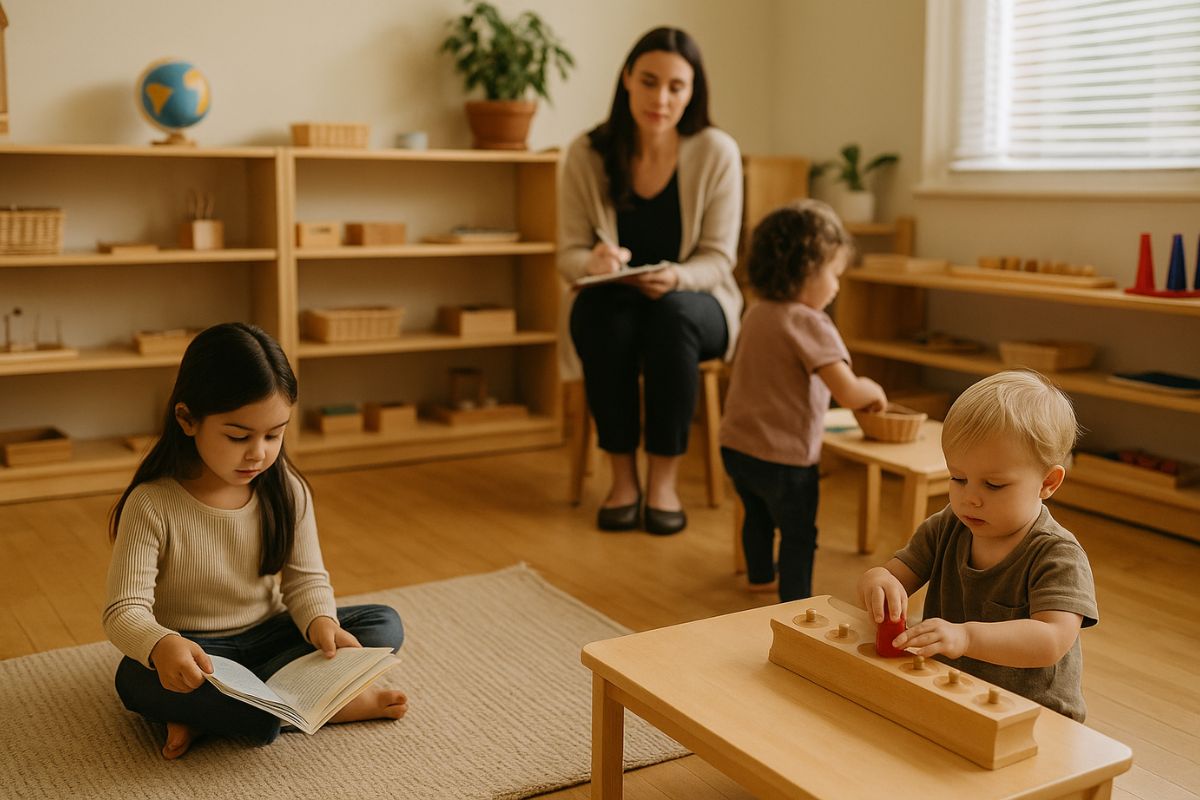
The Role of Observation in Montessori Classrooms
Every Montessori classroom offers a peaceful, prepared environment where children can grow in their own time. But behind this quiet rhythm is a careful, intentional practice—observation. It’s one of the most powerful tools a Montessori guide uses, yet it often goes unseen by those unfamiliar with the approach. For children […]
Read More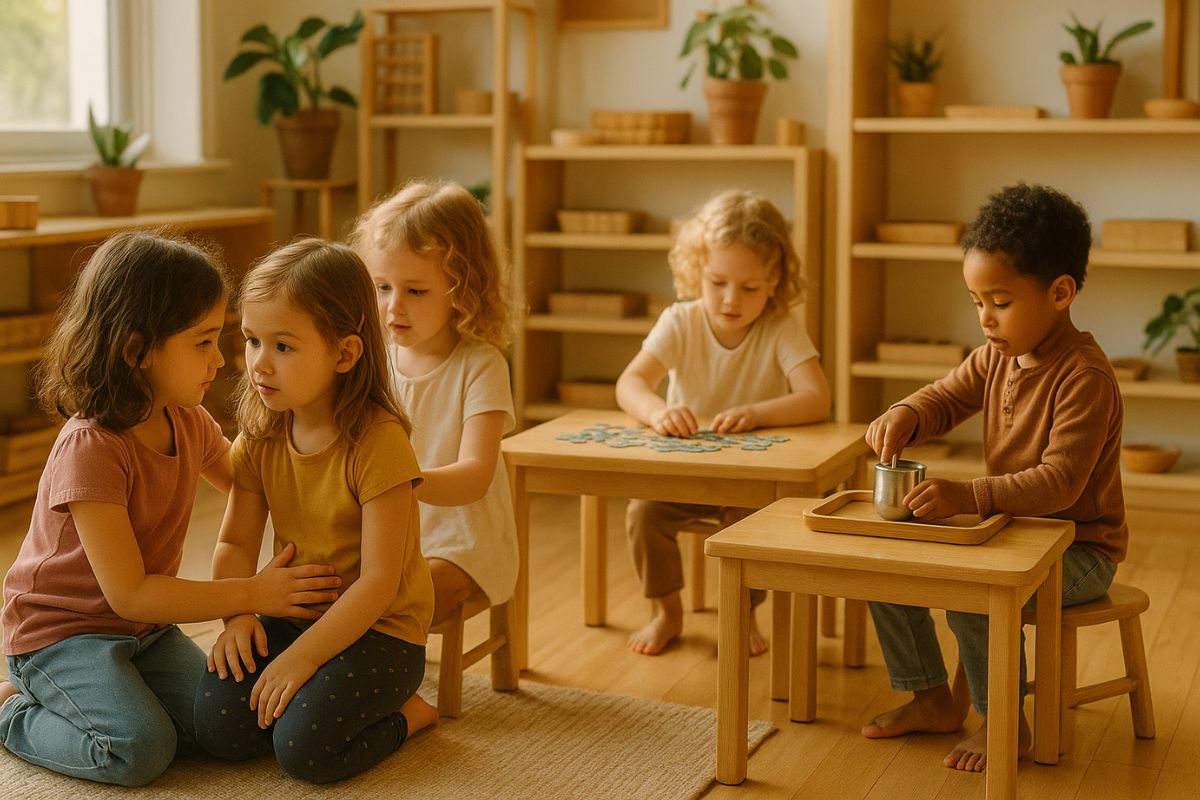
Social and Emotional Growth in Montessori
A child’s development reaches far beyond academics. The way they form friendships, solve conflicts, express feelings, and care for others shapes their daily lives and long-term well-being. In Montessori classrooms, social and emotional growth isn’t a separate subject. It’s woven into every part of the environment, from the way materials […]
Read More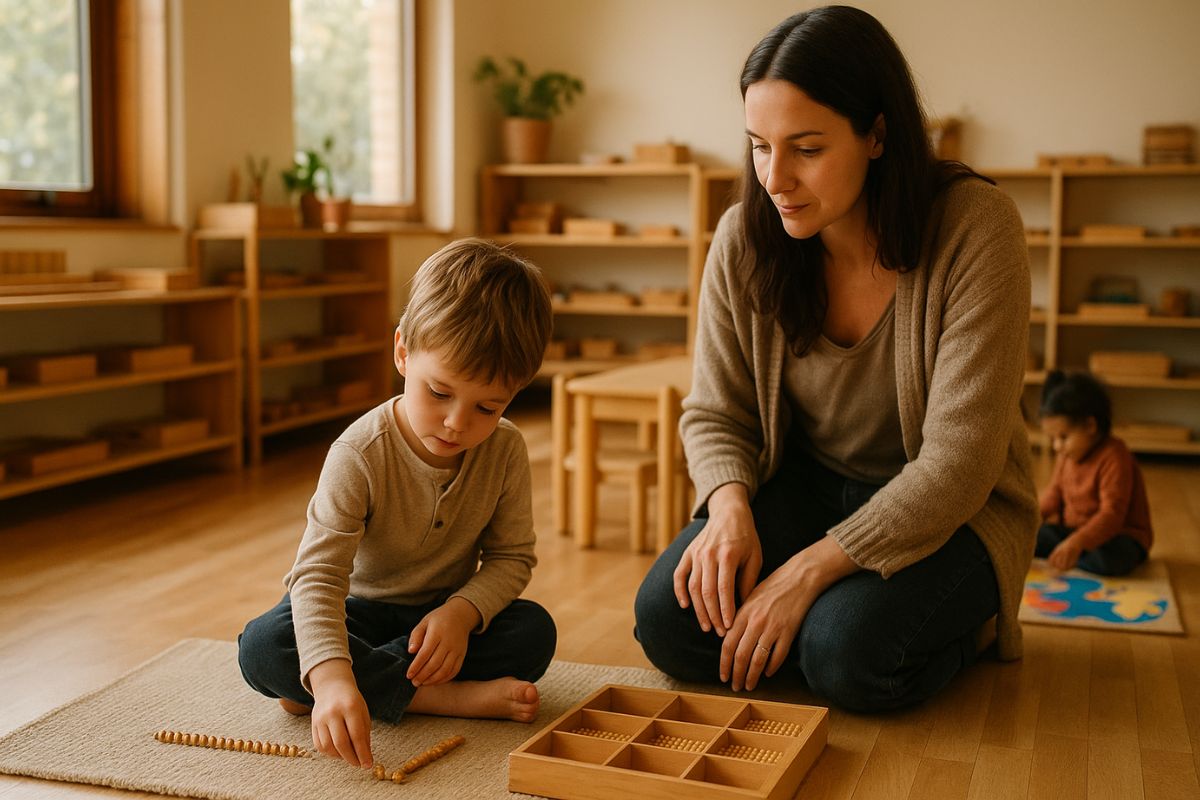
How Guides Facilitate Learning in Montessori
In every Montessori classroom, there’s someone who seems to be quietly watching, gently guiding, and offering just the right help at the right time. That person is the guide. Not a traditional teacher and not a passive observer, the Montessori guide plays a vital role in shaping a learning environment […]
Read More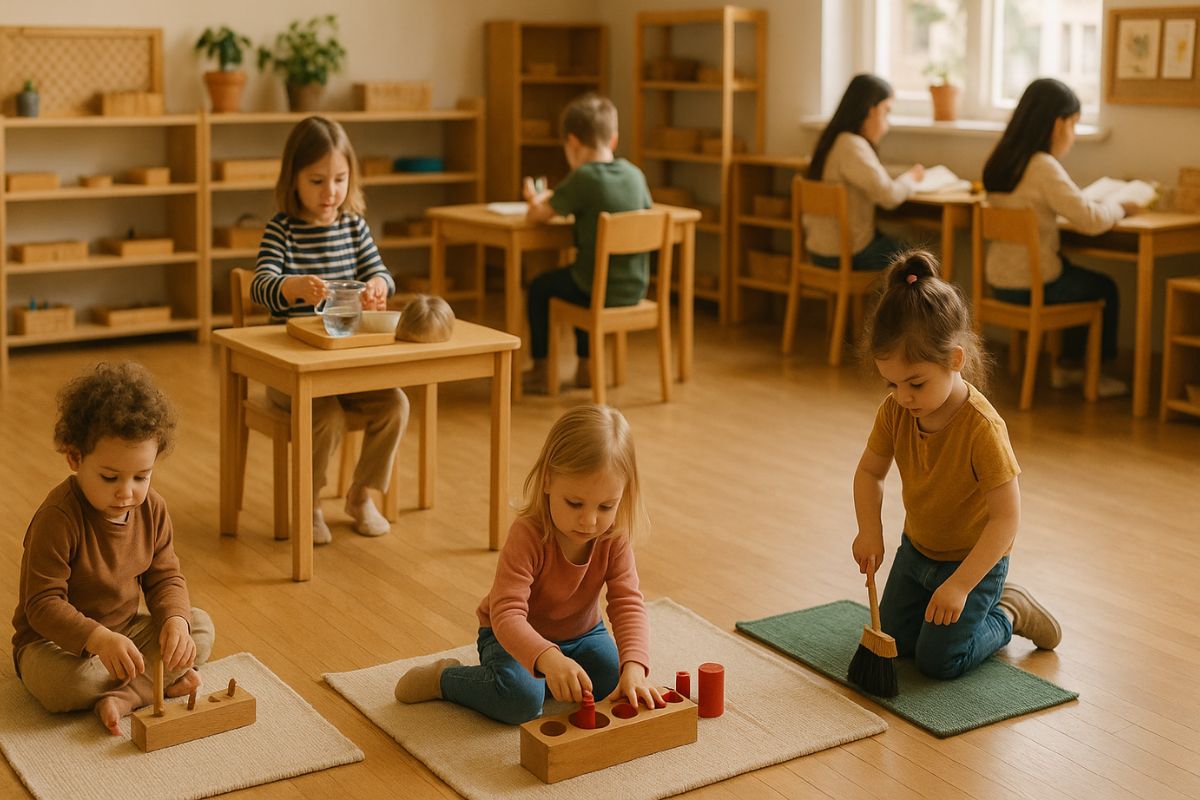
Daily Routines in Montessori for Each Age Group
Children thrive on rhythm. In Montessori environments, daily routines are more than just schedules—they’re intentional frameworks that support growth, independence, and focus. From the youngest toddlers to children preparing for adolescence, each routine reflects the needs of the child at that stage while nurturing their natural desire to learn. Montessori […]
Read More